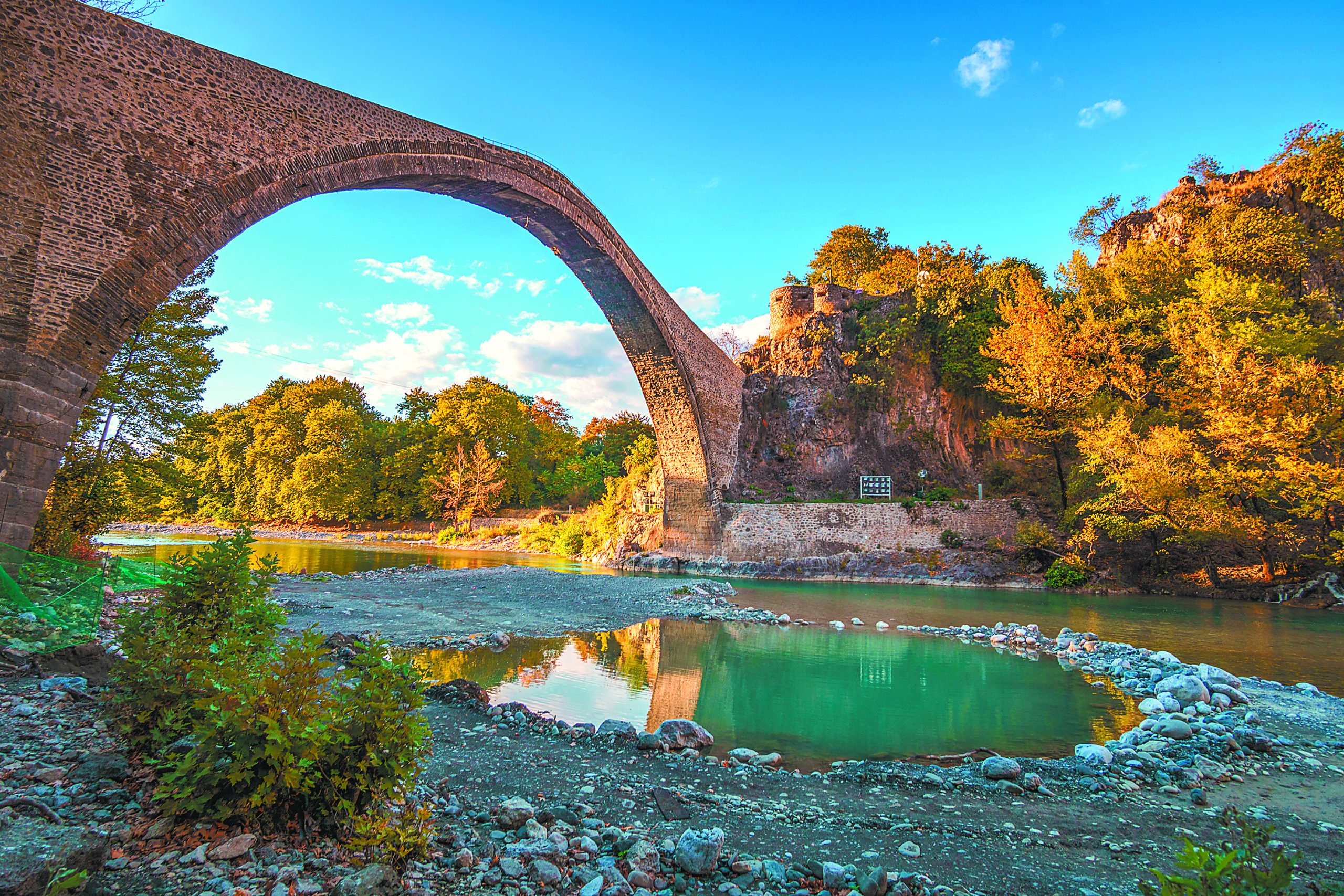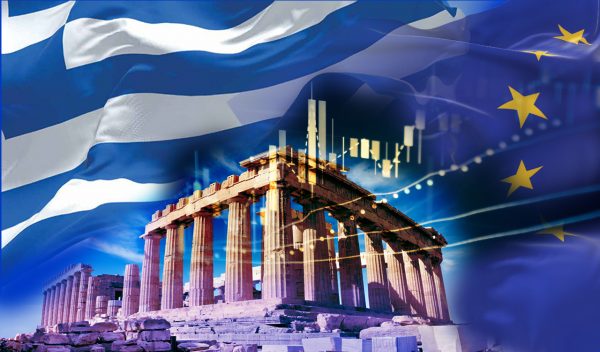
With a new identity and an international “passport”, Greek nature aspires to approach all naturalists, who are looking for a travel destination that has it all: a unique environment, alternative activities, tours, accommodation, local products. All with the “seal” of certification of a single “corporate” identity for Greek nature with the distinctive title “Nature Greece”.
The idea of presenting Greek nature under a “brand name”, with emphasis on its diversity, its protected areas, in connection with local destinations, services and the primary sector, is put into practice by the Organization for Natural Environment and Climate Change (OFYPEKA), with funds from the Recovery Fund.
Only 40% of the country’s Natura 2000 sites cover a total of 27.59% of the country’s land area and 19.6% of the sea surface – if they were highlighted and exploited, as is the case in other European countries, the Greek economy could provide additional revenues of 2 billion euros per year, ie about 1% of GDP, and 15,000 jobs, as a study by diANEOsis has shown.
Natural capital
The plans of OFYPEKA, which is the central structure of the state for the coordination and implementation of actions for the protection and preservation of protected areas, is the utilization of natural capital to offer perspective to local communities – with new jobs, added value to local products and opportunities in tourism all year round – contributing to their sustainable development.
“The highlighting of the special features of a protected area and the emphasis on products and services that can be developed in them are a comparative advantage for the local economy. The organized presentation of these characteristics as “Nature Greece” – products and services – will contribute to the recognition of these areas as areas of special natural interest with significant benefits for the local community “says in” Vima “the president of OFYPEKA and professor at National Polytechnic Mrs. Maria Papadopoulou.
After all, Europe has shown the way. Conservative estimates by the Institute for European Environmental Policy, made on behalf of the European Commission on employment in the productive sectors in the EU, estimate that 1.3 million out of 9.6 million workers in agriculture are associated with protected areas.
Electronic portal
The main tool, according to the proposal submitted for funding to the Recovery Fund, will be an electronic portal, through which foreign and Greek visitors will have access to guided tours, alternative activities in Greek nature, accommodation, etc. “Nature Greece is a new idea that we proposed to OFYPEKA, which draws inspiration from examples and practices of other countries, but seeks their adaptation and development to the specifics of Greece,” said Ms. Ioli Christopoulou, Policy Director at GreenTank.
Information for visitors
For example, in Austria, as she points out, through the platform “National Park Austria” the National Parks Organization of the country provides visitors with information about each park and basic facilities and activities, e.g. trails, boat tours, etc. “But more specific information is provided, such as specific routes or opportunities for personalized tours when choosing the park you want to visit. “The “Nature Parks of Slovenia” platform has a similar approach, which additionally provides information on accommodation and restaurants”, notes Mrs. Christopoulou.
Ticket issuance
Another well-established practice that is applied in many countries is the possibility of issuing a ticket as well as booking additional activities through a single platform that covers the different protected areas of each country. There are also non-European standards, with the US Parks and Australia leading the way, as well as countries such as Kenya or South Africa that have invested in ecotourism development in recent decades.
Product labeling
“The possibilities are not exhausted in tourism. Under the identity “Nature Greece” a new label of local products can be created, which will give them added value. In this case the marking may indicate that a product originates in a protected area or develop into a certification system for practices followed during the production of the product, based on the degree of their contribution to the management of each region. In both cases, resources for the development of such a system can be drawn from actions of the new Common Agricultural Policy, which is expected to begin in 2023,” notes Ms. Christopoulou. Thus, it will be possible to highlight traditional products based on the brand “Nature Greece”, such as for example “Nature Greece product Vistonidas” or “Nature Greece buffalo cheese from Kerkini” etc.
Sustainable development and prospects
The adoption of a single identity can highlight the sustainable development prospects of protected areas, which differ according to the characteristics of each. The digital portal of “Nature Greece”, in addition to the presentation of the… portfolio of protected areas of the country, in connection with the regional management units, will also give, in addition to the basic information and suggestions for alternative activities by region (e.g. hiking, mountaineering, diving routes, mountaineering, boating, rafting, horseback riding, diving, etc.), the possibility of booking a place for a tour or buying a ticket. At the same time, “certified” local companies (accommodation, restaurants, etc.) will be promoted, as well as national service companies that are active in the field of eco-tourism. It will also be possible to “adopt” volunteering activities (eg for students in protected areas).
Latest News

DM Dendias: We talk With Turkey But We Always Bring Up Their Unacceptable Positions
Second and last day of closely watched conference, entitled 'Metapolitefsi 1974-2024: 50 Years of Greek Foreign Policy', also included appearances by PM Mitsotakis, Ex-PM Tsipras and PASOK leader Nikos Androulakis, among others

Rhodes Airport Tops Fraport Greece’s Regional Airports in 2024 Performance
According to Fraport's data, more than 35 million passengers (specifically 35.2 million) were handled by Fraport-managed airports during the 11 months.

European Central Bank Cuts Interest Rates by 25 Basis Points
It is the fourth cut of interest rates by Europe’s central bank, a move expected by the markets and financial analysts leading to the rate settling at 3%.

Airbnb: New Measures Add €600 in Extra Costs for Property Owners
Property managers face an immediate administrative fine of 5,000 euros if access to the inspected property is denied or any of the specified requirements are not met.

Economist: Greece Included in the Best Performing Economies in 2024
Meanwhile, Northern European countries disappoint, with sluggish performances from the United Kingdom and Germany.

EasyJet Expands Its Routes from Athens
The airline’s two new routes will be to London Luton and Alicante and they will commence in summer 2025.

Capital Link Forum Highlights Greece’s Economic Resurgence; Honors BoG Gov Stournaras
Capital Link Hellenic Leadership Award recipient, Bank of Greece Gov. Yannis Stournaras, an ex-FinMin, was lauded for his pivotal role during Greece’s economic recovery

Tourist Spending in Greece Up by 14%, Visa Card Analysis Shows
Greece’s capital Athens emerged as the most popular destination, recording a 17% increase in transactions with Visa cards, surpassing even the cosmopolitan island of Mykonos.

Inflation in Greece Unchanged at 2.4% in Nov. 2024
The general consumer price index (CPI) posted a 0.4% decrease in November compared to the previous month

2024 Christmas Holidays: Extended Shop Hours Schedule
The 2024 Christmas Holidays extended shop hours schedule commences on Thursday, December 12 and runs until the end of the year.


![Φυσικό αέριο: Δυναμικό come back του LNG στην Ελλάδα [γραφήματα]](https://www.ot.gr/wp-content/uploads/2023/01/OT_naturalgas-90x90.jpeg)











![Fraport: Πάνω από 35 εκατ. επιβάτες στα αεροδρόμια το 11μηνο – Πτώση στη Μύκονο [πίνακας]](https://www.ot.gr/wp-content/uploads/2022/06/fraport-90x90.jpg)



























 Αριθμός Πιστοποίησης Μ.Η.Τ.232433
Αριθμός Πιστοποίησης Μ.Η.Τ.232433